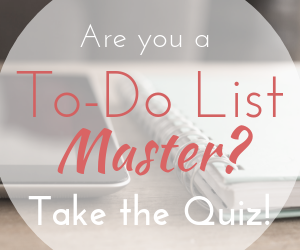The end of the day can be such a sweet time… Or it can be utter exhaustion and just time to flop over. Yep, I know I’ve had both experiences. In many ways, the end-of-day/bedtime ritual is both the most important and most challenging ritual to implement consistently.
At least, that has often been my experience. Some days just easily come to a close, and I have time to put my home, my body, and mind in order before settling into bed. Then, there are other days when we’re out with friends for dinner late, or it’s been a hard-core push to finish a bunch of work when just getting into bed feels like an accomplishment.
What I’ve learned is not to get too upset about those crazy days, but I aim to have them happen less frequently. Once or twice a week is ok. Just a couple times a month is better. Anything more than that, and it’s time to re-evaluate my scheduling decisions and priorities because that’s a sign I’m running myself ragged.
Have you noticed that? How you’re feeling in the evening is a great clue to how well you’re managing your energy overall. Let’s talk a bit more about why and what you can do to improve it…
The Why of Your Evening Routine
Why is it so important? Because tomorrow’s success is determined by what happens tonight. In other words… are you giving yourself enough sleep and taking care of the little tasks tonight that will give you energy for the next day and make tomorrow morning go smoothly?
Most of us have less control over what time we wake up each morning. We’ve got our routine, and we have to be ready to go and out the door at a certain time in order to get the kids to school or get to work. Which means, that we can’t typically make up sleep on the morning side. So, if we need to give ourselves more sleep it starts by getting to bed earlier. (7-9 hours is the target according to the National Sleep Foundation.)
That’s why having a ritual to help us wind-down and be ready for bed can be so crucial.
Designing Your Bedtime Routine
I find that my bedtime ritual has two major sections: 1) Wrap up & tomorrow prep and 2) Self-care. Think about it, what are the last few activities that you tend to do before bed?
Here are a few examples or ideas that might get you started:
Wrap-up and Tomorrow Prep:
Wrap-up and Tomorrow Prep:
- Doing the dishes & cleaning up the kitchen after dinner
- Folding the final load of laundry
- Pick up and putting things away around the house
- Packing lunch or prepping breakfast for tomorrow
- Choosing clothes for tomorrow
- Packing the gym bag or workout gear
Self-Care:
- Warm bath or shower
- Yoga or Stretching
- Meditation
- Brush/floss/wash face/etc
- Journaling/Reflection Time
- Reading or Listening to an Audiobook
In the best of possible worlds (for good sleep hygiene, as they say) here are a few to avoid:
- Checking email
- Watching TV within 30-60 min before bed
- Staring at any screen (this is one I occasionally struggle with… got a bad Facebook before bed habit.)
If it’s time to refresh your evening routine, then you might want to start by reflecting on your current routine. What do you do during the 30-60 minutes before bed?
Generally, rather than throwing out your current routine and starting from scratch, it’s better to just choose one change to make. Is there one new habit that you want to include and where in the flow of your current routine would it work best?
If you focus on making no more than 1 change per month (and even better might be 1 change per season), then you’ll have a better shot at having the change stick with you long-term. This incremental approach will allow you to focus your intentions and make the change more lasting, even if it does take longer to craft your ideal routine.
When to Get Started
 The most important part of the bedtime routine is when to get started in order to be asleep by your intended time. You can start by considering how long your current routine takes, then you’ll need to add in additional time for any new habit you want to create. I would start by adding more time than you expect because if you get to bed even earlier that’s unlikely to be a problem.
The most important part of the bedtime routine is when to get started in order to be asleep by your intended time. You can start by considering how long your current routine takes, then you’ll need to add in additional time for any new habit you want to create. I would start by adding more time than you expect because if you get to bed even earlier that’s unlikely to be a problem.It might be that you don’t need to add or remove anything from your bedtime routine, but you simply want to get started earlier. Try moving your usual times by just 15 minutes for a couple weeks, then another 15 minutes earlier for two weeks after that.
Our bodies and minds get used to certain triggers that tell us to start our end-of-day routine, and it can take a concerted effort to move those triggers. Use the alarm on your phone or identify other triggers that can help you know it’s time to wrap up.
One change that Brian and I found helpful was to limit ourselves to one TV show each evening. Then, rather than watching TV all the way until we were exhausted and ready for sleep, we would protect more of our quiet personal downtime in the evenings and get to bed at a better time more consistently.
Next Actions
You might want to start by reflecting on or even writing down all the steps in your current evening routine. Just becoming aware of your current pattern might make it clear what you would want to change.
At one point when I was really crafting my evening routine I wrote each step on a little slip of paper and then started moving them around and physically re-arranging them to help me imagine how that would be different. It was a really fascinating exercise and helped me consider alternative patterns to the end of my day.
In my experience, these rituals continuously evolve as our lives and needs shift, but if we approach the process intentionally we can make our end-of-day experience so much easier and nicer (at least most of the time ;).)



